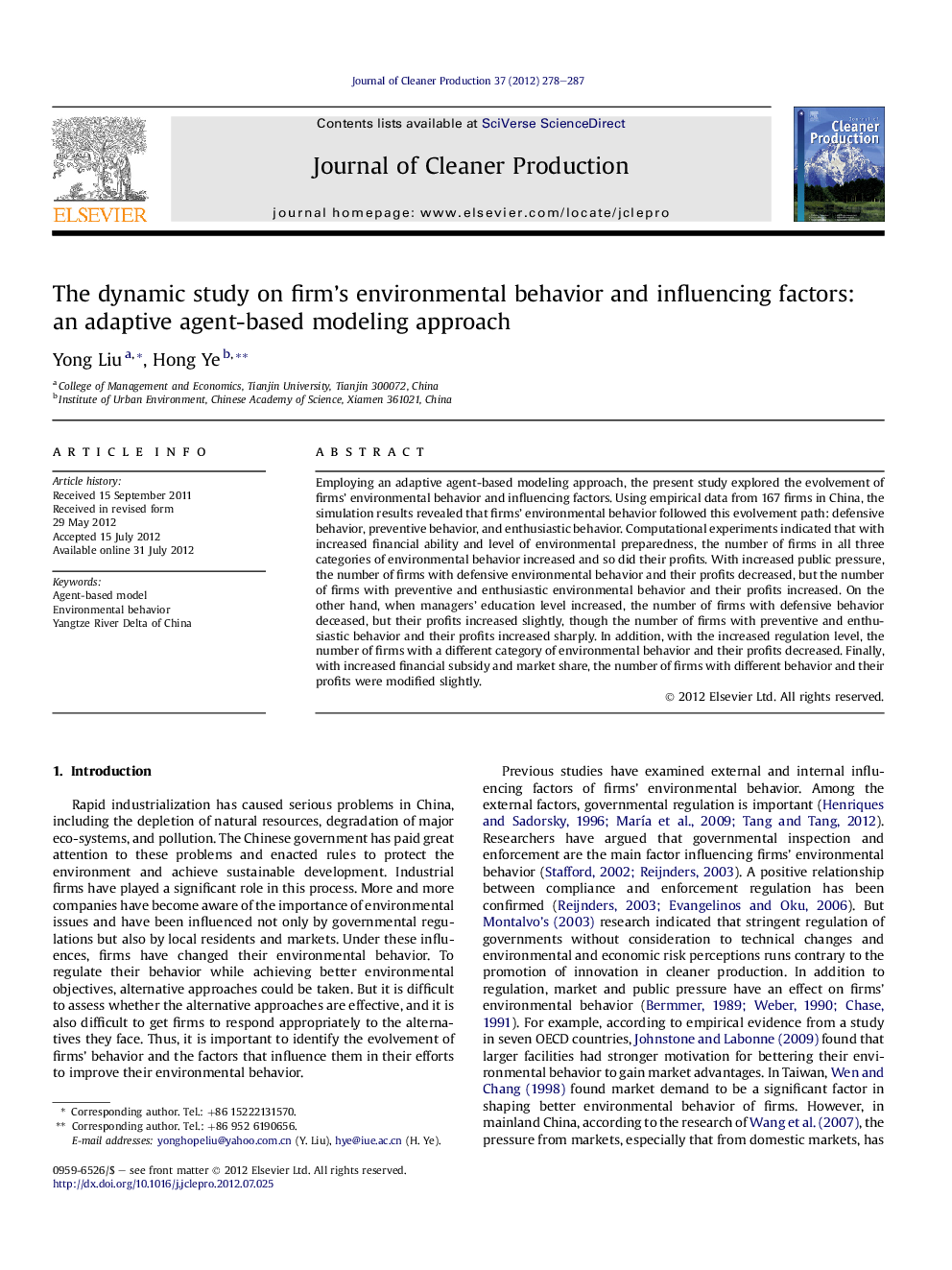| Article ID | Journal | Published Year | Pages | File Type |
|---|---|---|---|---|
| 8107930 | Journal of Cleaner Production | 2012 | 10 Pages |
Abstract
Employing an adaptive agent-based modeling approach, the present study explored the evolvement of firms' environmental behavior and influencing factors. Using empirical data from 167 firms in China, the simulation results revealed that firms' environmental behavior followed this evolvement path: defensive behavior, preventive behavior, and enthusiastic behavior. Computational experiments indicated that with increased financial ability and level of environmental preparedness, the number of firms in all three categories of environmental behavior increased and so did their profits. With increased public pressure, the number of firms with defensive environmental behavior and their profits decreased, but the number of firms with preventive and enthusiastic environmental behavior and their profits increased. On the other hand, when managers' education level increased, the number of firms with defensive behavior deceased, but their profits increased slightly, though the number of firms with preventive and enthusiastic behavior and their profits increased sharply. In addition, with the increased regulation level, the number of firms with a different category of environmental behavior and their profits decreased. Finally, with increased financial subsidy and market share, the number of firms with different behavior and their profits were modified slightly.
Related Topics
Physical Sciences and Engineering
Energy
Renewable Energy, Sustainability and the Environment
Authors
Yong Liu, Hong Ye,
